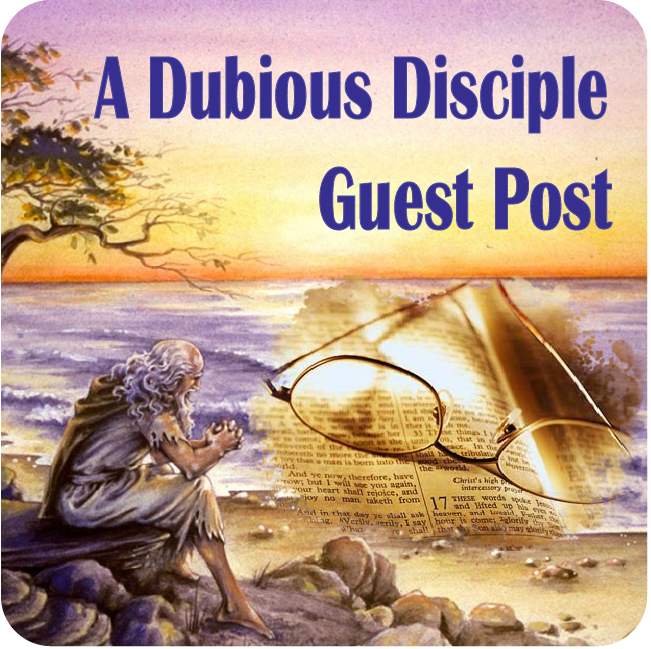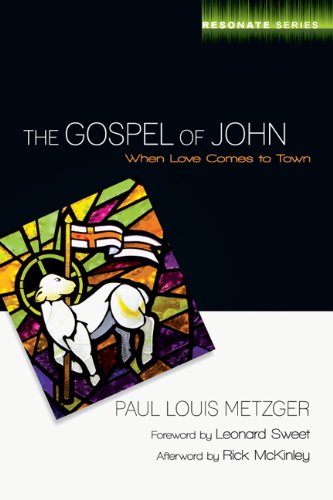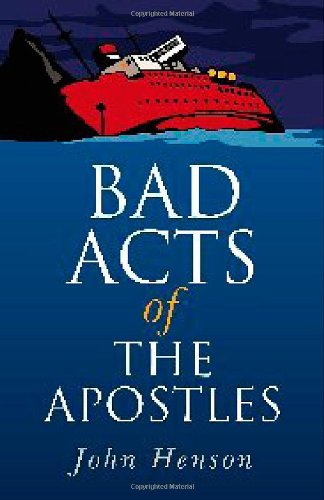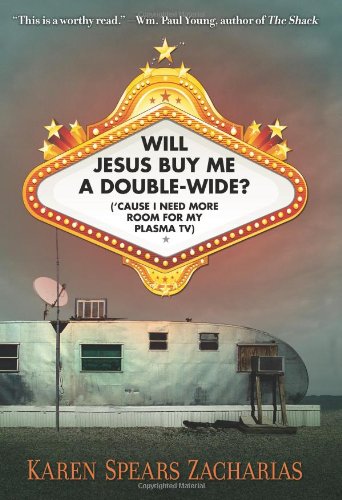Revelation 9:11, The Angel of the Abyss
They had as king over them the angel of the Abyss, whose name in Hebrew is Abaddon, and in Greek, Apollyon.
//In this verse, John of Patmos finds a corny play on Greek words to make a point. He describes a fearsome army of locusts the size of horses arising from the smoke of the Abyss. (The Abyss was thought to be a cavern within the underworld.) The job of these locusts is to torment people for five months. John calls the king of this fearsome army the “the angel of the Abyss,” and names him Apollyon, or Abaddon.
Apollyon, like Abaddon, means “destroyer,” and John’s clever play on words seems to be saying that the Greek god Apollo reigns over Sheol. Abaddon is another name for Sheol, the realm of the dead.
In an earlier post about Revelation, I described how the pose of twenty four elders around the throne of God mocked the Greek god Apollo. Now, here is Apollo again, as the angel of Sheol. It’s no coincidence that the locust symbolizes Apollo, the god of pestilence and plague.
Why does John seem to have it in for this particular god? Because Nero Caesar, the Roman emperor who tortured so many Christians and ordered the destruction of Jerusalem and the Temple, claimed to be Apollo. Coins were minted with Nero’s portrait appearing as Apollo, Nero’s statue was erected in an ancient temple of Apollo, and a building in Athens was dedicated to All powerful Nero Caesar Sebastos, a new Apollo. Meet the original angel of the Abyss: Nero Caesar.
More about Nero Caesar and his dastardly role in the book of Revelation can be found in my book, Revelation: The Way it Happened.
Book review: The Gospel of John: When Love Comes to Town
by Paul Louis Metzger
★★★
Not a bad book, it just wasn’t what I was expecting. Other reviews built up my hopes for a deep exegesis, but this wasn’t the focus. Metzger is more interested in encouraging us in our walk with God.
Example: The book opens, as expected, with the Logos prologue to John’s Gospel. After a short discussion, Metzger writes, “One could easily get lost in deep theological and Trinitarian reflection on the divine Word of John 1, and how the Word is with God and is God from all eternity.” Yes, please! Let’s! But we didn’t. A bit later, in the same chapter, Metzger writes off the topic: “Jesus loves me this I know, for the Bible tells me so. That computes far better than e=mc2 or any mathematical formula any day, don’t you think? Now, won’t you experience?”
I purchased this book on my own (rather than it being sent to us for review), so I felt no obligation to finish. I read about a third of it, scanned the rest to see if the focus would change, and settled upon a non-rating of three stars. Certainly well-written, but not very helpful from a scholarly perspective.

Psalms 95:3, the Council of Gods
For the LORD is the great God, And the great King above all gods.
//Yesterday, I introduced the council of gods in heaven. The Hebrew God, Yahweh, was apparently believed to be the head of the council:
Psalms 82:1, God stands in the congregation of the mighty; He judges among the gods.
Yahweh apparently became the big cheese because of his might:
Psalms 89:6, For who in the skies above can compare with the LORD? Who is like the LORD among the heavenly beings?
This “council of gods” in heaven was a common Mediterranean belief where Israel settled, and each community held loyal to their own chosen local representative on the council. Israel’s chosen god was particularly jealous, requiring strict devotion to him alone:
Exodus 34:14, For you shall worship no other god, for the LORD, whose name is Jealous, is a jealous God
In fact, he didn’t even want his humans talking about other gods:
Exodus 23:13, “And in all that I have said to you, be circumspect and make no mention of the name of other gods, nor let it be heard from your mouth.”
In time, of course, Judaism evolved away from the idea of multiple gods. Instead, they began to claim that all the other gods were either make-believe or were demons. We’ve come full circle back to yesterday’s verse and Paul’s claim in the New Testament:
1 Corinthians 8:4, … there is no other God but one.
Got an opinion? 0 comments1 Corinthians 8:4, Only one God?
… there is no other God but one.
//Pretty clear, huh? On December 9, 2011, I discussed whether or not Israel was originally polytheistic … believing in multiple gods. For some reason, it seems to rankle people to imagine that religious beliefs evolved over time. But the existence of other gods was originally taken for granted in the Bible. Here’s an example:
Exodus 22:28, Thou shalt not revile the gods, nor curse the ruler of thy people. As Judaism developed, they came to believe in only one God, but even the Bible supports scholars’ conclusion that polytheism was originally common. The creation story gives plenty of hints:
Genesis 1:26, Then God said, “Let Us make man in Our image, according to Our likeness.” Who is it that was creating the universe alongside God? A bit later, when Adam and Eve ate from the tree, God says, “Behold, the man has become like one of us, to know good and evil.” Then comes the tower of Babel, and God says, “Come, let us go down and there confuse their language, that they may not understand one another’s speech.” You can find other examples. There existed a “we” in heaven. Christians tend to think of a triune God, a “Father, Son and Holy Ghost” speaking among themselves, but the doctrine of the Trinity hardly existed when these words were penned.
Genesis 14:22, But Abram said to the king of Sodom, “I have raised my hand to the LORD, God Most High, the Possessor of heaven and earth. Here we have a more common explanation of the “we” up in heaven. Abraham’s God is not alone, but he is the Most High god, the big cheese. There existed a council of gods, and the Hebrew God ruled over the council. More about this council tomorrow.
Book review: Bad Acts of the Apostles
by John Henson
★★★★★
I loved this book!! It’s original, fun to read, and thought-provoking. And that last one is, above all else, the primary determinant in how I rate a book … how much it makes me think.
I do confess this: You need to know your Bible before reading this one. There’s just too much cram-packed into these 200 pages for Henson to take time to describe the setting of every topic. He assumes you know the Bible stories, and he assumes you’ve had some exposure to Biblical criticism. The result is no wasted words, and I wound up savoring it very slowly.
Henson’s point seems to be that nobody, not even Jesus’ closest followers, measure up to Christ. Given the opportunity to lead on their own, the apostles’ floundering attempts in the book of Acts sometimes seem to steer the boat off course, away from the compassionate message of their founder. Henson relays the stories in Acts with wry insight, and here I should confess something else: Once in a while, Henson’s opinionated directness overshadows his humor. He comes down particularly hard on “Rocky” (Peter) and Paul (who “loved to give advice” even on non-theological matters, and wasn’t above the occasional “I told you so” afterward.) Hey, turns out these guys were human after all! None of this is cause to despise these early Christians, we just love them all the more in their character flaws, marveling all the more at how Christianity survived its first bumbling attempts. In other words, Henson’s direct approach works.
Definitely worth reading!

Genesis 7:23, Did the Flood Destroy All Life?
Every living thing on the face of the earth was wiped out; men and animals and the creatures that move along the ground and the birds of the air were wiped from the earth. Only Noah was left, and those with him in the ark.
//This verse seems pretty clear on the matter. But since scientific study continues to insist there has been no worldwide flood, a number of Bible readers consider the flood story to be a local event. They point to other locations in scripture where “the whole world” appears to mean only the surrounding area of the writer.
The flood story, however, carries an unmistakable moral lesson: Life on earth would not have survived were it not for Noah’s faithfulness. Life was preserved only because Noah brought animals into the ark, to preserve these species on earth. That’s the entire point of the flood myth, isn’t it? God wiped out his creation and started over.
But not only does external evidence undermine this interpretation, the Bible itself does! If you believe all life on earth was destroyed, consider the following:
Genesis 6:4, The Nephilim were on the earth in those days–and also afterward–when the sons of God went to the daughters of men and had children by them. They were the heroes of old, men of renown.
This verse is provided to bolster the wickedness of mankind before the flood. The story reads as if God wished to destroy the Nephilim (giants) by the flood. But then comes this verse, long after the flood, describing the fearsome people inhabiting the promised land:
Numbers 13:33, We saw the Nephilim there (the descendants of Anak come from the Nephilim). We seemed like grasshoppers in our own eyes, and we looked the same to them.”
Perhaps the Nephilim were so tall that they were able to keep their heads above water?
Jonah 1:1-2, The Message of Jonah
Now the word of the LORD came unto Jonah the son of Amittai, saying, Arise, go to Nineveh, that great city, and cry against it; for their wickedness is come up before me.
//The book of Jonah is a wonderful, humanitarian story about universal love. You know the story: God says to Jonah, “go, preach to Nineveh.” Jonah balks, for who could be sympathetic toward the hated Assyrians and their capital city of Nineveh? Jonah runs the other way. He winds up on a boat tossed by a powerful storm, is heaved overboard by the sailors when he is discovered to be the cause for God’s wrath, and is swallowed by a big fish. When the fish coughs him up three days later, Jonah has had enough. He repents and does what God commands, preaching to Nineveh.
The whole city of Nineveh repents (Jonah must have been one heckuva preacher) and Jonah is miffed because God decides to pardon them. Jonah goes and sulks under a big “gourd” to escape the hot sun and contemplate the unfairness of life. Before the next day dawns, however, God creates a little worm who eats the gourd. Jonah is miffed all the more. God explains his lesson: Then said the LORD, Thou hast had pity on the gourd, for the which thou hast not laboured, neither madest it grow; which came up in a night, and perished in a night: And should not I spare Nineveh, that great city, wherein are more than sixscore thousand persons that cannot discern between their right hand and their left hand; and also much cattle?
This tale might be considered no more than a fun bedtime story, were it not for its timing. Scholars date the writing of this book precisely to a period in time when Jerusalem was undergoing a severe ethnic cleansing, shortly after a wave of Jews returned from captivity in Babylon. In an attempt to purify God’s race, all non-Jews were being banished outside the walls of Jerusalem, even though it meant breaking up marriages and families.
Enter the anonymous book of Jonah, a bit of protest literature, with its plea for tolerance for all nations. The man Jonah, readers would recognize, is a portrayal of the Jews’ own bigotry.
Book review: Will Jesus Buy Me a Double-Wide?
by Karen Spears Zacharias
★★★★
Karen’s new book is a collection of short introductions, mostly anonymous personas such as “The Bookseller” or “The Grill Man.” Some are inspirational in the way they spread kindness with their lives and/or money, while others are downright sickening in their greed or coercion through a prosperity gospel. Think TV evangelists who promise that if you send your $100 now, today, God will bless you by returning far more. The book is sometimes heartwarming, sometimes disturbing.
Karen writes with wit and passion. She’s opinionated and direct, and she gets on her high horse a bit as she exposes The Secret as utter hogwash, money-grubbing TV evangelism as downright fraud, and Bernie Madoff as the embodiment of evil. But she’s serious about learning from the example of Jesus, and I dare say she has Jesus on her side. That is, if Jesus’ teachings about money and its use are to be taken seriously.
Worth reading!

Matthew 6:10, Hermeneutics and Exegetics
Thy kingdom come. Thy will be done in earth, as it is in heaven.
//Hermeneutics and Exegetics—two big buzzwords that Bible scholars love to use. Just being able to pronounce these buggers is enough to establish your scholarly credibility, right?
Don’t be intimidated. Let me give it to you simply, so you understand what they mean, and how you can practice them yourself.
Exegetics is the study of the original meaning of a text. It requires historical context. Hermeneutics is the next step: how is that understanding relevant to today’s world? Proper hermeneutics is always founded on solid exegetics, but most people want to skip the original meaning and jump right into its current-day application.
Let’s use the topic of the Lord’s Prayer as an example, because it’s still on my mind from my recent review of Robert Cornwall’s book, Ultimate Allegiance. Consider this line: “Thy kingdom come. Thy will be done in earth, as it is in heaven.” Reflective exegesis of this prayer recognizes that the earliest Christians were calling for a new age to begin. They held a vision of a kingdom on earth ruled by God. This new age they called the Kingdom of God, or the Kingdom of Heaven. Hermeneutics without exegesis, however, will invariably focus on the heaven part of the verse to the exclusion of the earth part, because today’s Christians dream of living with God up in heaven. Christians today often pray this prayer thinking, “God, come take us up to your home with you,” whereas if they flavored their hermeneutics with proper exegetics they would think, “God, come down and make your presence known in this world.”
Guest Post: Did Jesus’ Death Save Us From Sin?
After reading the first of Christian Piatt’s Banned Questions series, I contacted him asking if I could borrow a page from the book as a guest page. Now, having read and equally enjoyed the second book of the series, I contacted him again, asking about running a second guest post from this book. I chose this short discussion by Phil Snider.
Phil was asked to answer this question: “Jesus forgave people of their sins before he died. How could he do this if he actually had to die in order to save us from sin?”
//For many years, I sat in church quietly wondering why God’s forgiveness was based on the idea that awful violence had to be inflicted upon Jesus in order for God to save us from sin. I was never comfortable with this idea, but I feared voicing my questions would make my Christian friends think I was a hell-bound heretic.
It was only when I went to seminary that I learned this wasn’t the only way to view Jesus’ death, and I’m glad to say I no longer believe Jesus had to die in order to save us from sin.
As it turns out, the idea that Jesus had to die on the cross in order for God to forgive our sins took nearly a thousand years to develop, and numerous theologians have pointed to its problematic implications. Chief among these concerns are questions related to God’s power and God’s character. In terms of God’s power, why is it necessary for God to sacrifice God’s Son in order to grant forgiveness? Is there, as Frederiek Depoortere says, “some higher authority or necessity above God with whom God has to comply in doing this”?
In terms of God’s character, can’t such a belief make God out to be “a perverse subject who plays obscene games with humanity and His own Son,” like the narcissistic governess from Patricia Highsmith’s Heroine who sets the family house on fire in order to be able to prove her devotion to the family by bravely saving the children from the raging flames?
Instead, my Christian faith is grounded in the affirmation that God’s love is unconditional, which leads me to believe that God’s forgiveness is unconditional as well. All of which means that Jesus’ unconditional forgiveness—offered before he died—is one of the things that makes him most Godlike!

















 354 Circles
354 Circles
 603 Goodreads Friends & Fans
603 Goodreads Friends & Fans

 Hello! I'm an author, historical Jesus scholar, book reviewer, and liberal Christian, which means I appreciate and attempt to exercise the humanitarian teachings of Jesus without getting hung up on any particular supernatural or religious beliefs.
The Bible is a magnificent book that has inspired and spiritually fed generations for thousands of years, and each new century seems to bring a deeper understanding of life’s purpose. This is true of not only Christianity; through the years, our age-old religions are slowly transforming from superstitious rituals into humanitarian philosophies. In short, we are growing up, and I am thrilled to be riding the wave.
I avidly read all thought-provoking religion titles. New authors: I'd love to read and review your book!
Hello! I'm an author, historical Jesus scholar, book reviewer, and liberal Christian, which means I appreciate and attempt to exercise the humanitarian teachings of Jesus without getting hung up on any particular supernatural or religious beliefs.
The Bible is a magnificent book that has inspired and spiritually fed generations for thousands of years, and each new century seems to bring a deeper understanding of life’s purpose. This is true of not only Christianity; through the years, our age-old religions are slowly transforming from superstitious rituals into humanitarian philosophies. In short, we are growing up, and I am thrilled to be riding the wave.
I avidly read all thought-provoking religion titles. New authors: I'd love to read and review your book!
 Hi! While Lee writes the articles and reviews the books, I edit, organize, and maintain the blog. The views expressed here are Lee's but I'm his biggest supporter! :-)
Hi! While Lee writes the articles and reviews the books, I edit, organize, and maintain the blog. The views expressed here are Lee's but I'm his biggest supporter! :-)
Connect With Me!